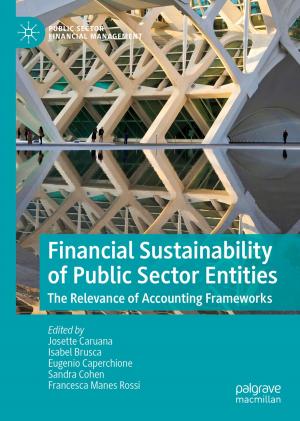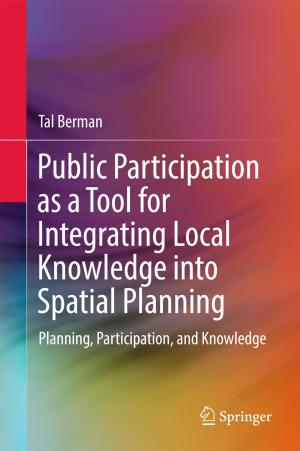Megacities 2050: Environmental Consequences of Urbanization
Proceedings of the VI International Conference on Landscape Architecture to Support City Sustainable Development
Nonfiction, Social & Cultural Studies, Social Science, Human Geography, Science & Nature, Science, Biological Sciences, Environmental Science| Author: | ISBN: | 9783319705576 | |
| Publisher: | Springer International Publishing | Publication: | November 14, 2017 |
| Imprint: | Springer | Language: | English |
| Author: | |
| ISBN: | 9783319705576 |
| Publisher: | Springer International Publishing |
| Publication: | November 14, 2017 |
| Imprint: | Springer |
| Language: | English |
This interdisciplinary proceedings book addresses highly relevant topics in urbanization and its environmental impacts and presents case studies revealing the negative environmental consequences of the anthropogenic and technogenic pressures. Urbanization is an important trend in current land-use change, with up to 70% of the world population projected to live in cities by 2050. How will this rapid urbanization alter the face of Europe? What are the environmental consequences of the expansion of megacities? These and other important questions are addressed in the Megacities 2050 Proceedings of the VI International Conference on Landscape Architecture to Support City Sustainable Development.
Megapolises are complex ecosystems, and their air and water quality, vegetation and soils are exposed to anthropogenic influences. The book discusses advanced approaches and techniques to monitor, model and assess environmental consequences and risks in megapolises and offers solutions to the environmental problems of modern megapolises. It also presents successful, sustainable urban-development projects from Europe and beyond, including the management and design of green infrastructure, waste management, run-off purification and remediation of urban soils.
Focusing on urban soils and ecosystems, the book is intended for experts in various fields of geography, urban studies and planning, and environmental sciences, including those in the scientific and research community, municipal services, environmental protection agencies, stakeholders working in urban management and greenery, landscape architects, civil engineers and policy-makers.
This interdisciplinary proceedings book addresses highly relevant topics in urbanization and its environmental impacts and presents case studies revealing the negative environmental consequences of the anthropogenic and technogenic pressures. Urbanization is an important trend in current land-use change, with up to 70% of the world population projected to live in cities by 2050. How will this rapid urbanization alter the face of Europe? What are the environmental consequences of the expansion of megacities? These and other important questions are addressed in the Megacities 2050 Proceedings of the VI International Conference on Landscape Architecture to Support City Sustainable Development.
Megapolises are complex ecosystems, and their air and water quality, vegetation and soils are exposed to anthropogenic influences. The book discusses advanced approaches and techniques to monitor, model and assess environmental consequences and risks in megapolises and offers solutions to the environmental problems of modern megapolises. It also presents successful, sustainable urban-development projects from Europe and beyond, including the management and design of green infrastructure, waste management, run-off purification and remediation of urban soils.
Focusing on urban soils and ecosystems, the book is intended for experts in various fields of geography, urban studies and planning, and environmental sciences, including those in the scientific and research community, municipal services, environmental protection agencies, stakeholders working in urban management and greenery, landscape architects, civil engineers and policy-makers.















